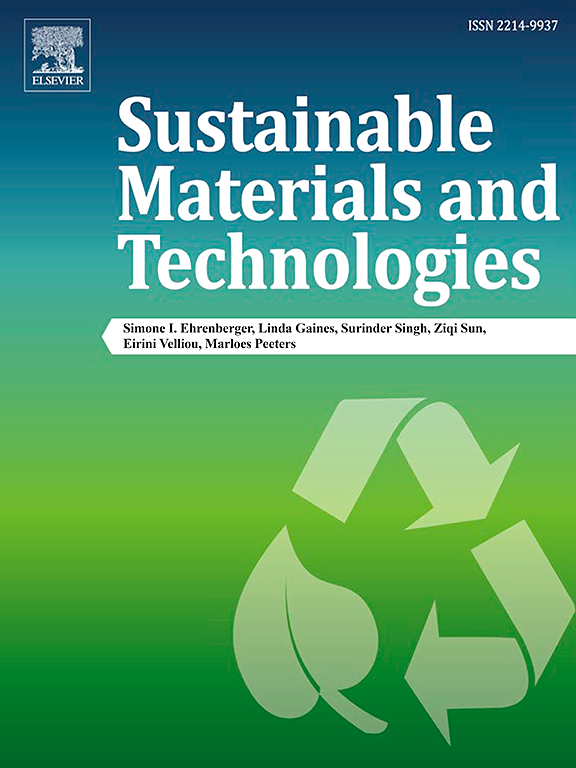Alpha-lipoic acid inspired cationic waterborne polyurethane/chitosan-modified cotton fabrics with enhanced dyeability and antioxidant properties
IF 8.6
2区 工程技术
Q1 ENERGY & FUELS
引用次数: 0
Abstract
The development of multifunctional cotton composites combining waterproof, wrinkle-resistant, anti-ultraviolet, antioxidant properties, along with good dyeability, is highly attractive for expanding their application in protective textiles. In the work, a composite cotton fabric (cWPU/CS/LA@C) was prepared via knife-coating process, using cationic waterborne polyurethane (cWPU) and chitosan (CS) as matrices, with alpha-lipoic acid (LA) serving as both the active ingredient and crosslinking agent. The mechanical properties of cWPU/CS/LA@C were significantly improved, showing a tensile strength of 58.74 MPa and an elastic modulus of 446.46 MPa. Additionally, it exhibited high hydrophobicity, excellent wrinkle resistance, good antioxidant activity and satisfactory low-temperature dyeability. Compared to the untreated cotton fabric, higher color depth (K/S) values were achieved for the modified cotton fabrics dyed with curcumin and reactive red KN-B at 30 °C and 60 °C, respectively. Meanwhile, the adsorption behavior of two dyes on modified cotton under these dyeing conditions followed the pseudo-first-order kinetic model. Furthermore, the color fastness of cWPU/CS/LA@C fabric remained at a high level even after 15 washing cycles. This research provides a simple feasible approach for preparation of multifunctional cotton composite materials and broadens their applications in technical and healthcare textile fields.
硫辛酸激发的阳离子水性聚氨酯/壳聚糖改性棉织物,具有增强的可染性和抗氧化性能
开发集防水、抗皱、抗紫外线、抗氧化和良好染色性能于一体的多功能棉复合材料在防护纺织品中的应用前景十分广阔。以阳离子水性聚氨酯(cWPU)和壳聚糖(CS)为基体,α -硫辛酸(LA)作为活性成分和交联剂,采用刀涂法制备了复合棉织物(cWPU/CS/LA@C)。cWPU/CS/LA@C的力学性能得到显著改善,抗拉强度为58.74 MPa,弹性模量为446.46 MPa。此外,它还具有高疏水性、优异的抗皱性、良好的抗氧化活性和令人满意的低温染色性。用姜黄素和活性红KN-B分别在30°C和60°C下染色后,改性棉织物的色深(K/S)值高于未处理棉织物。同时,在这些染色条件下,两种染料在改性棉上的吸附行为符合准一级动力学模型。此外,cWPU/CS/LA@C织物在洗涤15次后仍保持较高的色牢度。本研究为多功能棉复合材料的制备提供了一种简单可行的方法,拓宽了其在技术和保健纺织领域的应用。
本文章由计算机程序翻译,如有差异,请以英文原文为准。
求助全文
约1分钟内获得全文
求助全文
来源期刊

Sustainable Materials and Technologies
Energy-Renewable Energy, Sustainability and the Environment
CiteScore
13.40
自引率
4.20%
发文量
158
审稿时长
45 days
期刊介绍:
Sustainable Materials and Technologies (SM&T), an international, cross-disciplinary, fully open access journal published by Elsevier, focuses on original full-length research articles and reviews. It covers applied or fundamental science of nano-, micro-, meso-, and macro-scale aspects of materials and technologies for sustainable development. SM&T gives special attention to contributions that bridge the knowledge gap between materials and system designs.
 求助内容:
求助内容: 应助结果提醒方式:
应助结果提醒方式:


